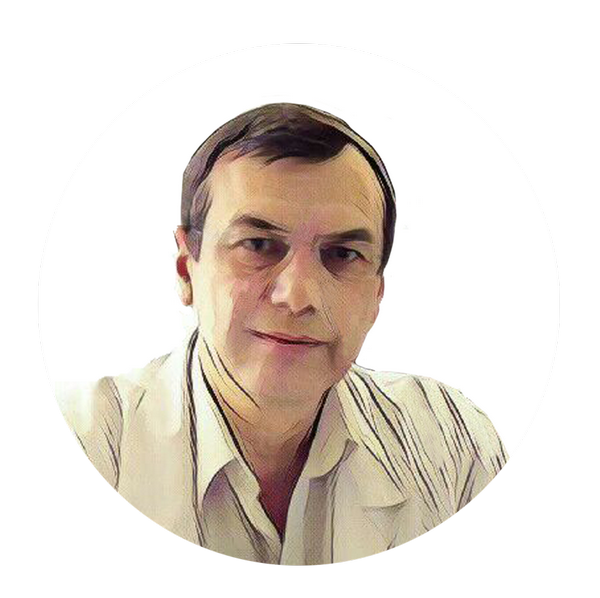



ORCID: 0000-0001-8351-8152
Scopus Author ID: 57342898200
RSCI Author ID: 97295
Head of the Department of Molecular Biology and Experimental Anticancer Therapy, Russian Scientific Center of Roentgenoradiology (Moscow, Russia).
DSc (medicine), CSc (biology), professor
Areas of expertise:
Clinical oncology, experimental oncology, development of new methods for the diagnosis and treatment of cancer, peptide inhibition of intracellular regulation, cell penetrating peptides (CPP), immunotherapy with genetically modified lymphocytes (chimeric antigen receptors etc.), tumor genotype and phenotype as diagnostic and prognostic factors.
Honored Doctor of the Russian Federation.
ABOUT SCIENCE:
I never thought of being a scientist in my youth. At that time science fiction was extremely popular, and almost everyone knew the novel by Boris and Arkady Strugatsky “Monday begins on Saturday” by heart. However, a Russian word for “scientist” (which literally means someone who has been taught) was largely frowned upon and often replaced by the phrase “a person who quenches his curiosity at public expense”. But at school I became interested in biophysics and then started searching for a higher educational institution where this discipline was taught. For some reason I did not want to apply to a medical school or a faculty of biology. And then one day I came across an announcement from the Office of Admissions of the Department of Biophysics at the Second Moscow Order of Lenin Pirogov State Medical Institute (now known as Pirogov Russian National Research Medical University). As I was reading the announcement, I suddenly realized that it was just what I had been dreaming of. I was able to fill in the application form just in time to submit it on the last day of the filing period. Then I passed the exams and was admitted. During my time at the university, I understood that medical application of physics was not what I enjoyed learning about; but I still was interested in complex pathologies and general biological processes, such as tissue malignization, aging, inflammation, etc. Immunology that was so popular at that time did not appeal to me, perhaps, because of the methods it employed or because of the number of people who wanted to study it. Nevertheless, my thesis and candidate degree dissertation, which I defended at the Department of Biophysics (the Faculty of Biology, MSU), were on biophysics and its medical application. After my defense, I undertook another effort to get myself interested in the field of medical application of biophysics: I studied how nuclear magnetic resonance could be used in vitro as a diagnostic technique in oncology. It was then when I grew even more convinced that physical methods were insufficiently specific to detect tumor malignancy. So, I turned to a multiparametric approach based on the assessment of small low-specific changes employing a large number of parameters to improve sensitivity and specificity of a diagnostic procedure. Later on, I developed an interest in gene therapy, but soon understood that it was not effective enough: it is impossible to infect each and every malignant cell. Then another method caught my attention: based on cell penetrating peptides, it is a unique way of delivering different molecules, including full sized proteins or genes, into the cell with 100 % precision. This technique is a good alternative for gene therapy. By this time, our laboratory has developed a few promising peptide-based medications, one of which is currently undergoing a clinical trial; others are in the preclinical development phase. Interestingly, our approach allows obtaining inhibitors for proteins that do not interact with low weight molecular compounds, and can be used in the state-of-art 3D modeling and library synthesis.
What I recommend to young scientists and professionals is reading. Read widely and as much as possible. Make yourself familiar with many disciplines. Something new is born at the interface of various sciences. Biophysics used to have a joke: What is biophysics? It is a science born in the place where other disciplines overlap, and overlapping strips of land do not give birth to anything but weeds. Who is a biophysicist? It’s a man who can talk biology to physicist and physics to biologist.
Significant publications in last 5 years